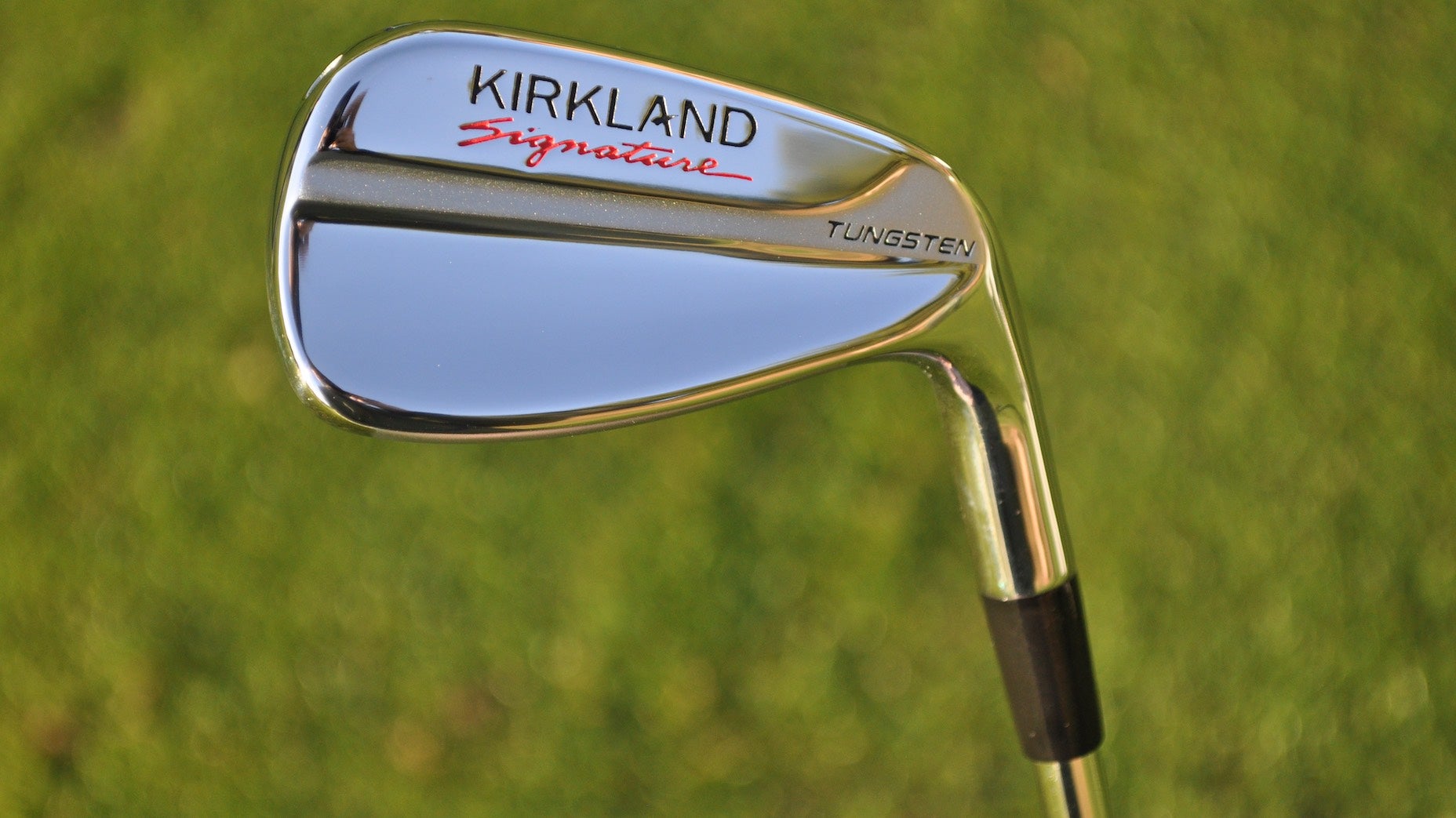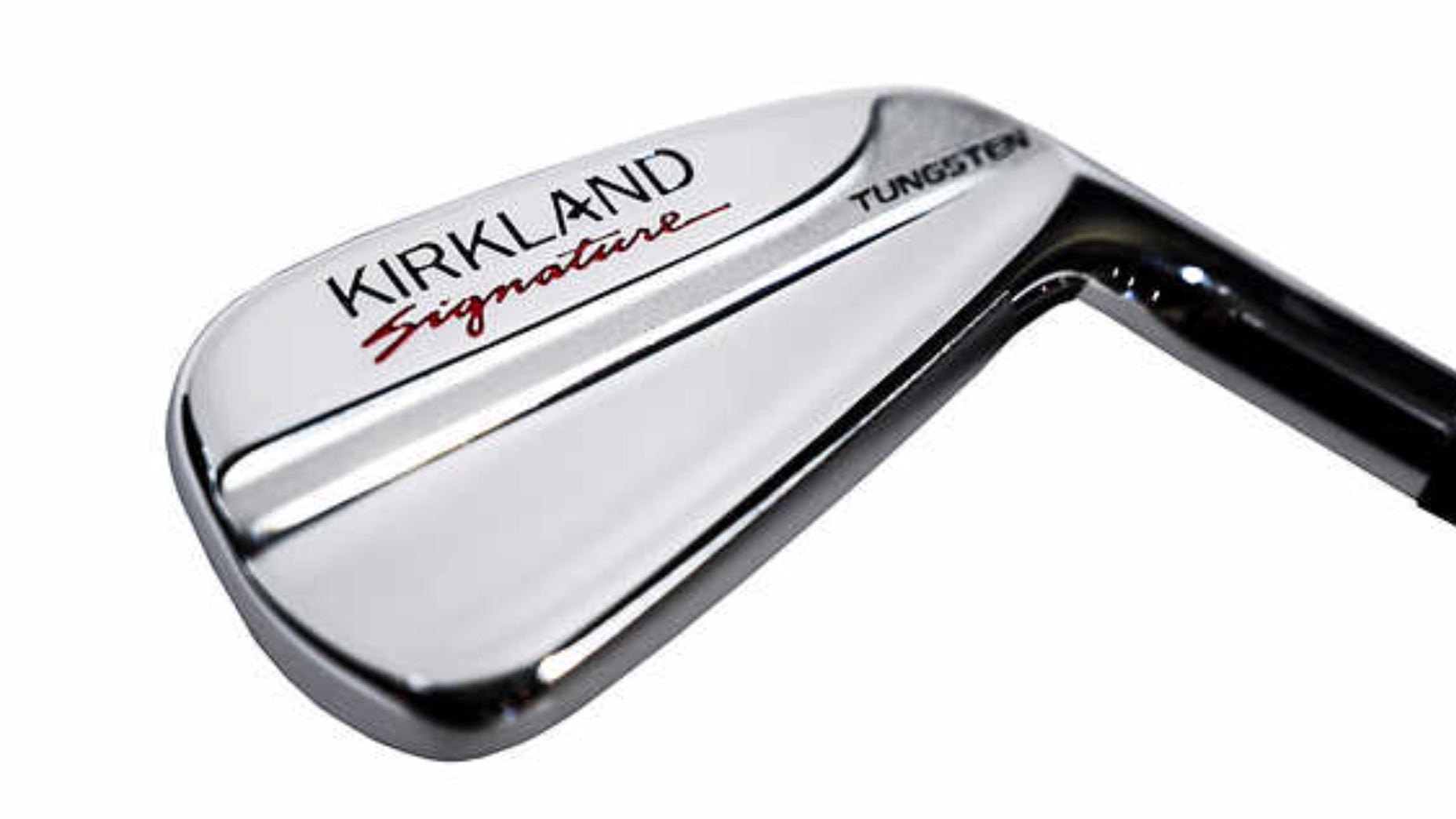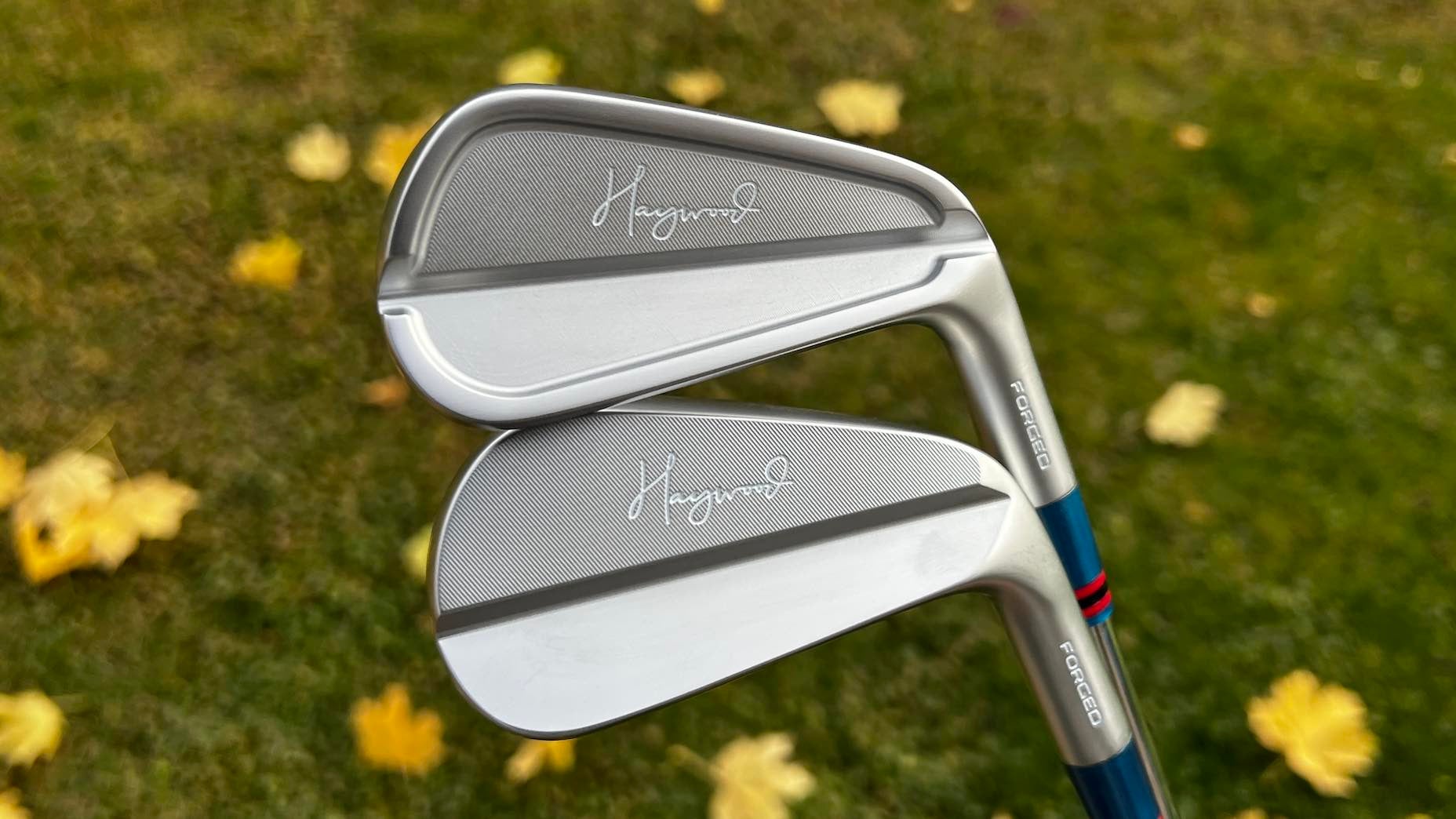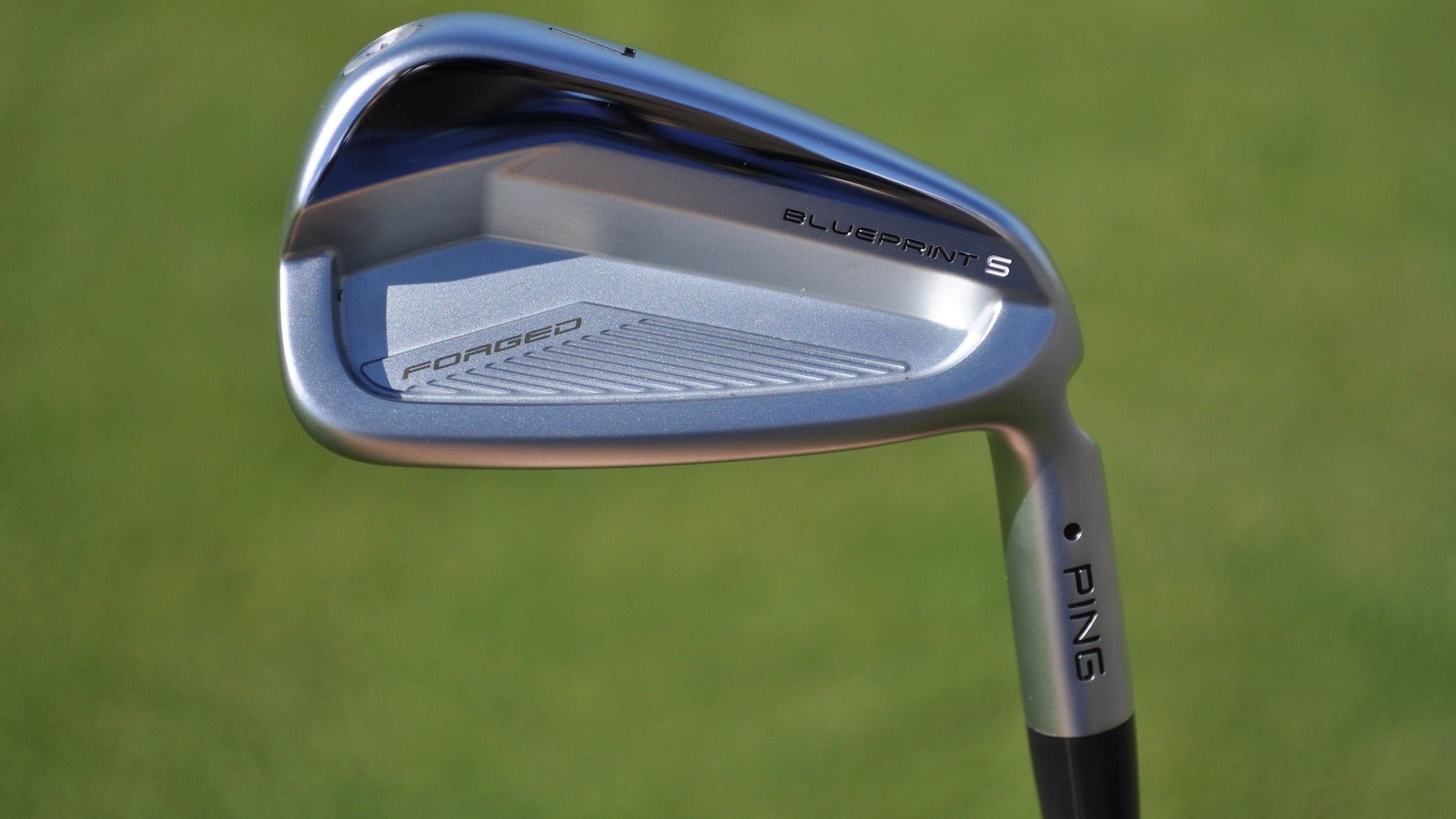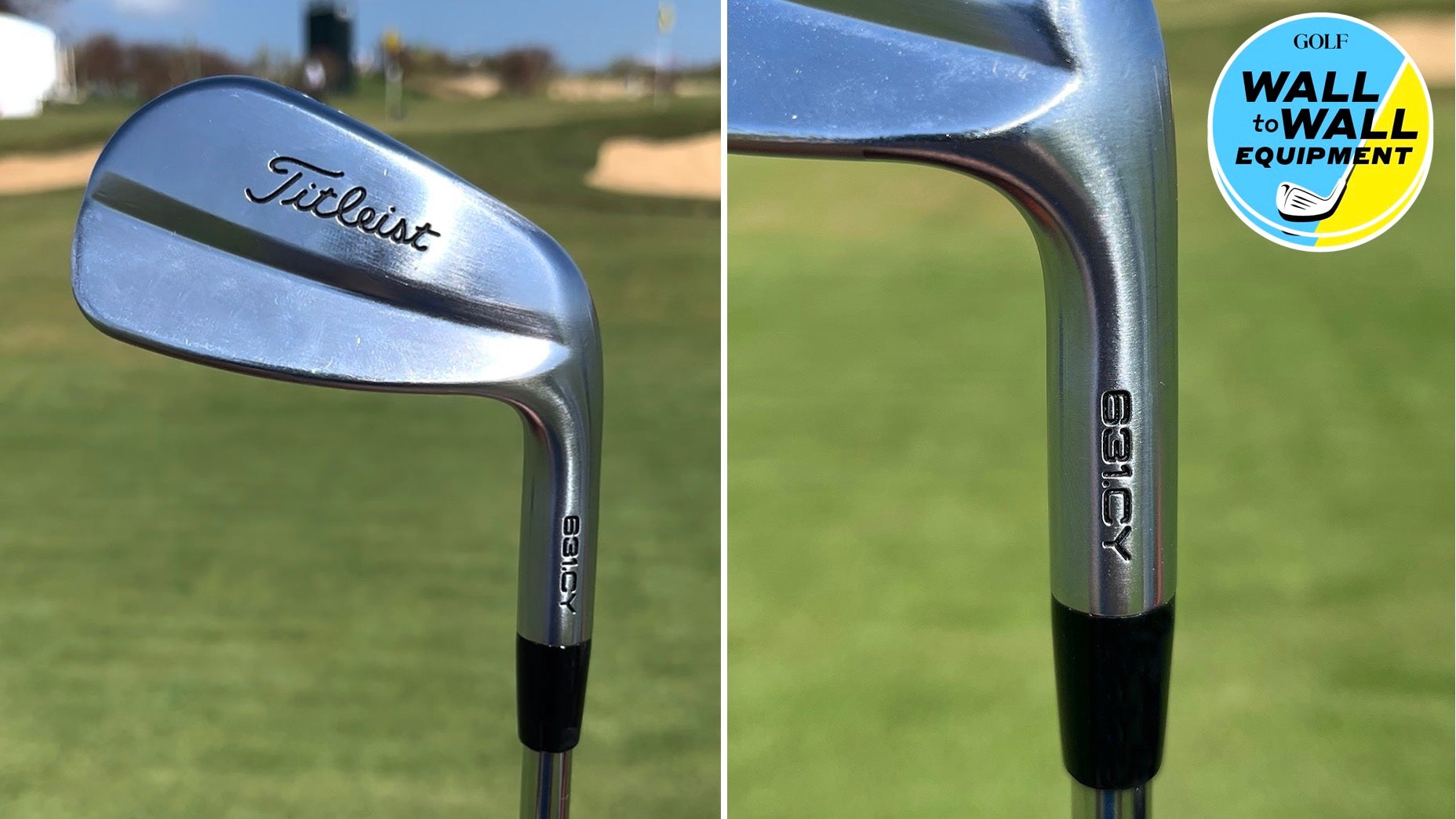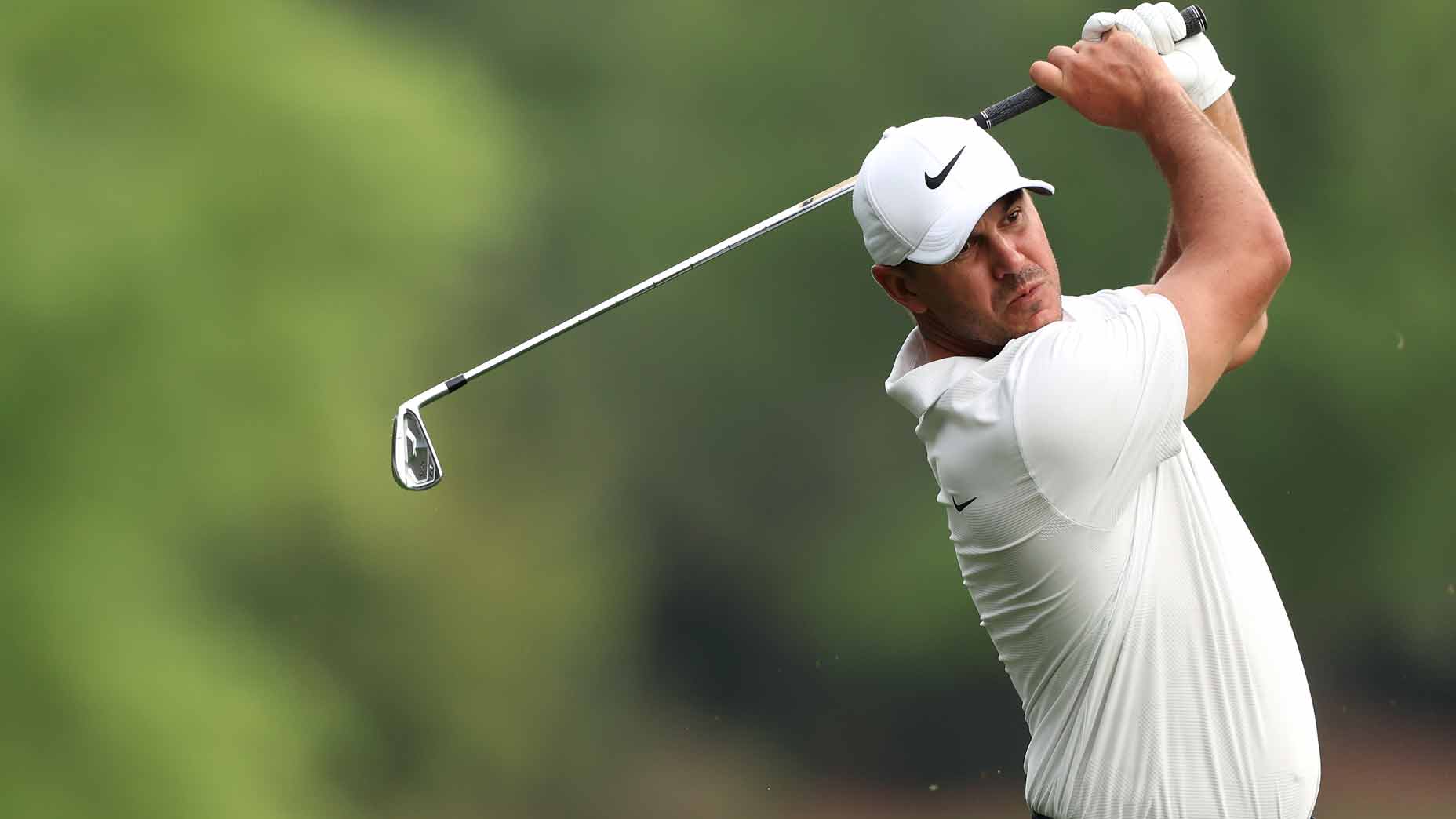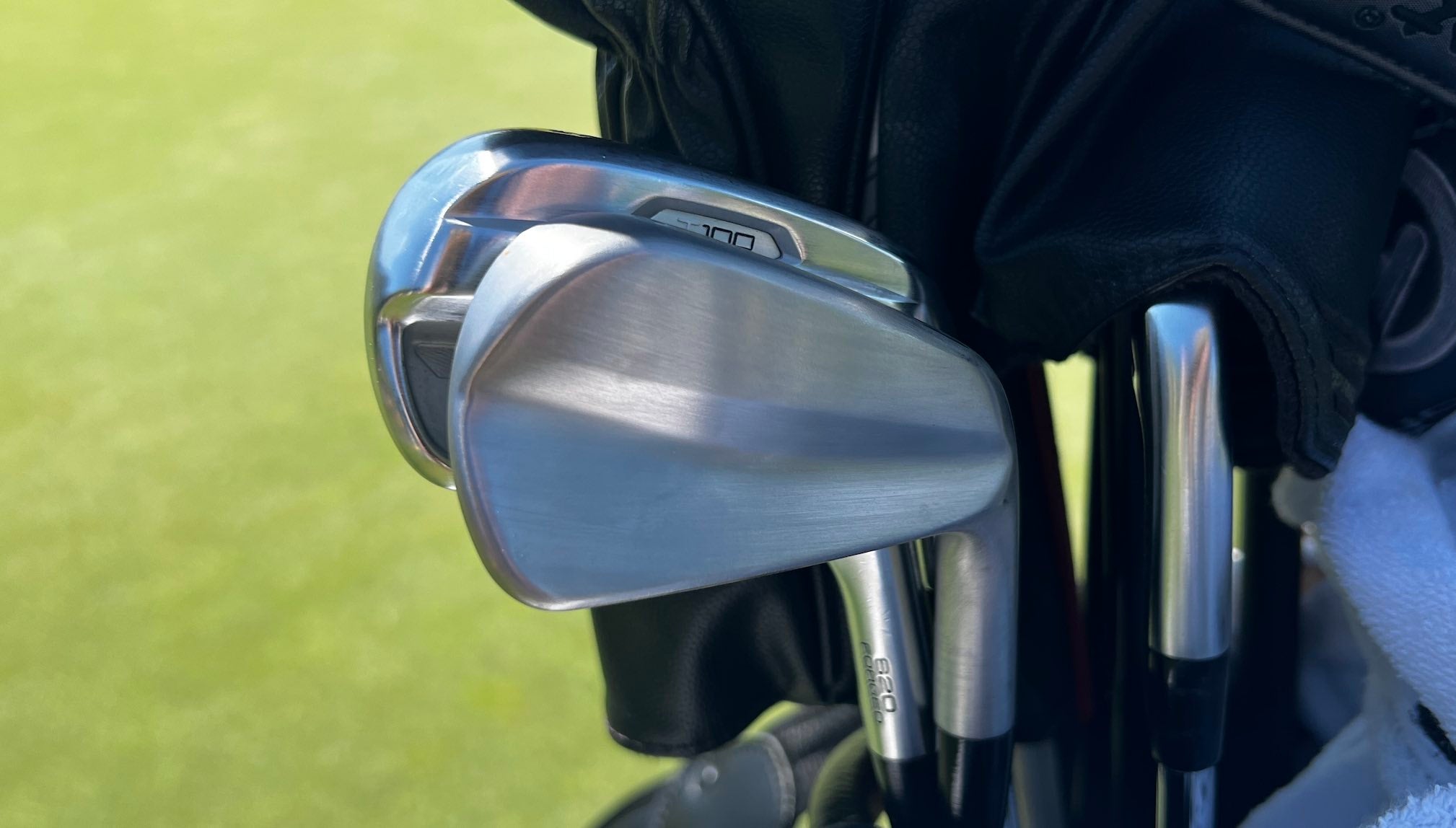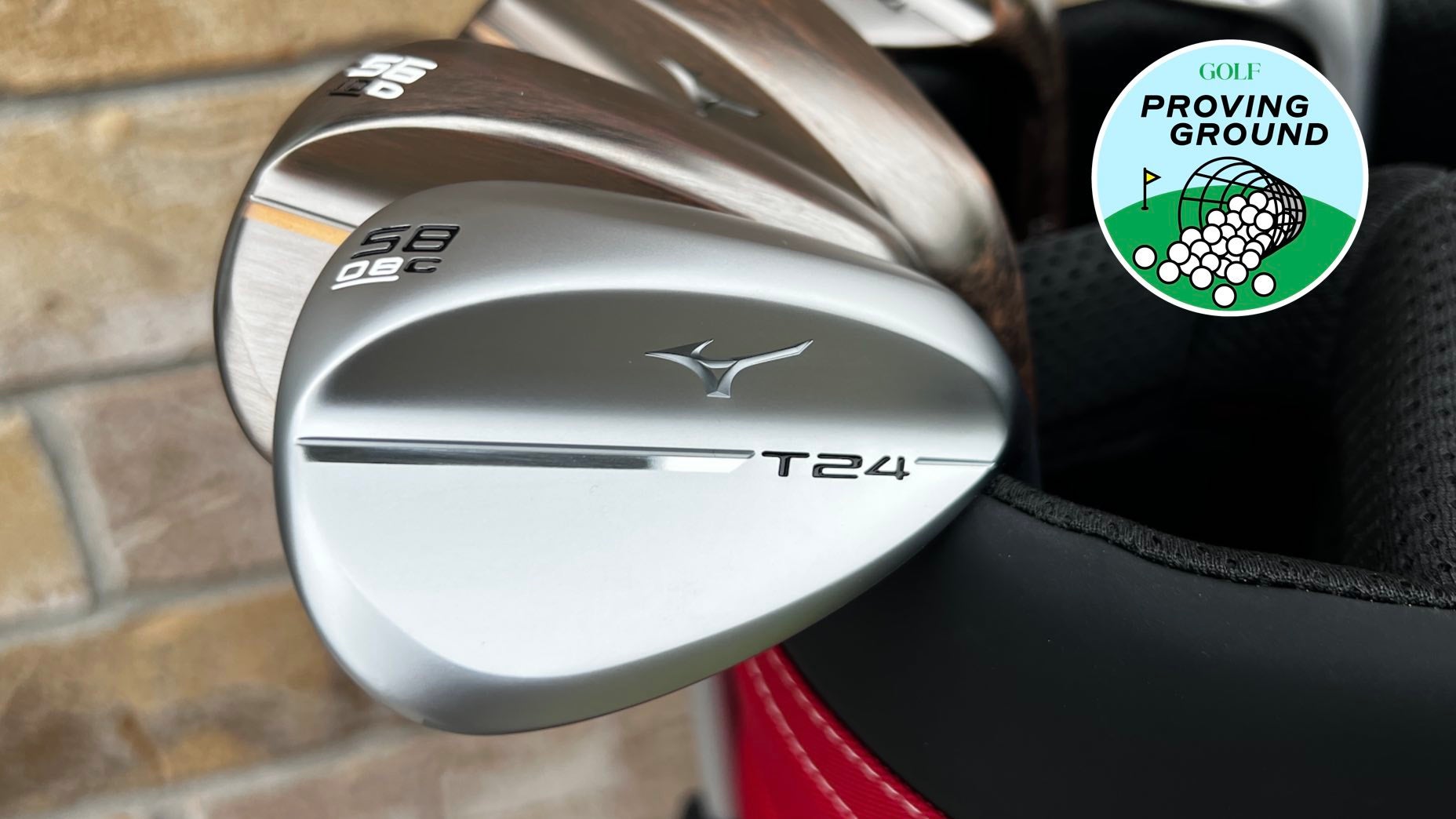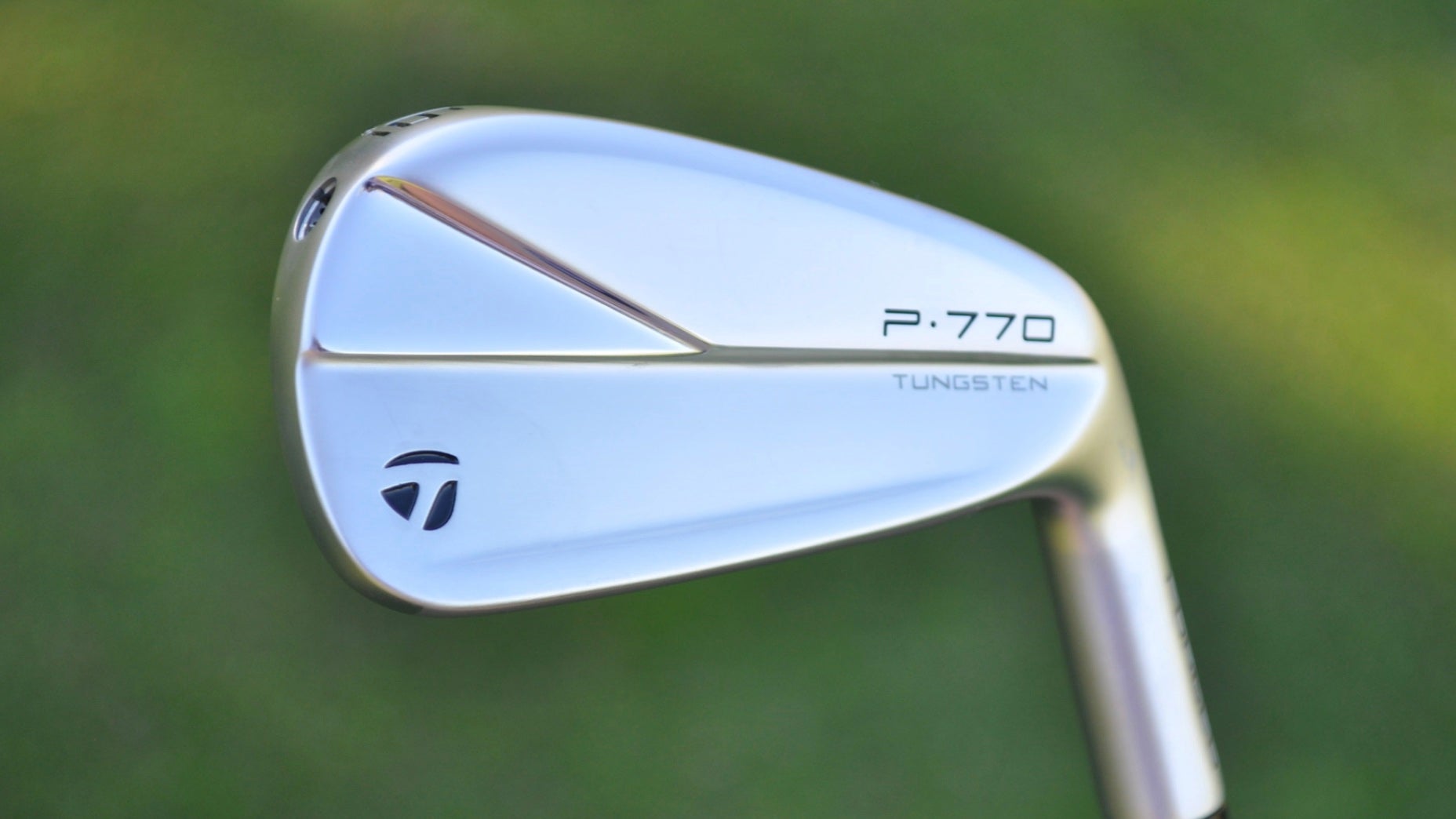Classic looks, modern tech — we test the Vega Mizar Pro irons | Proving Ground
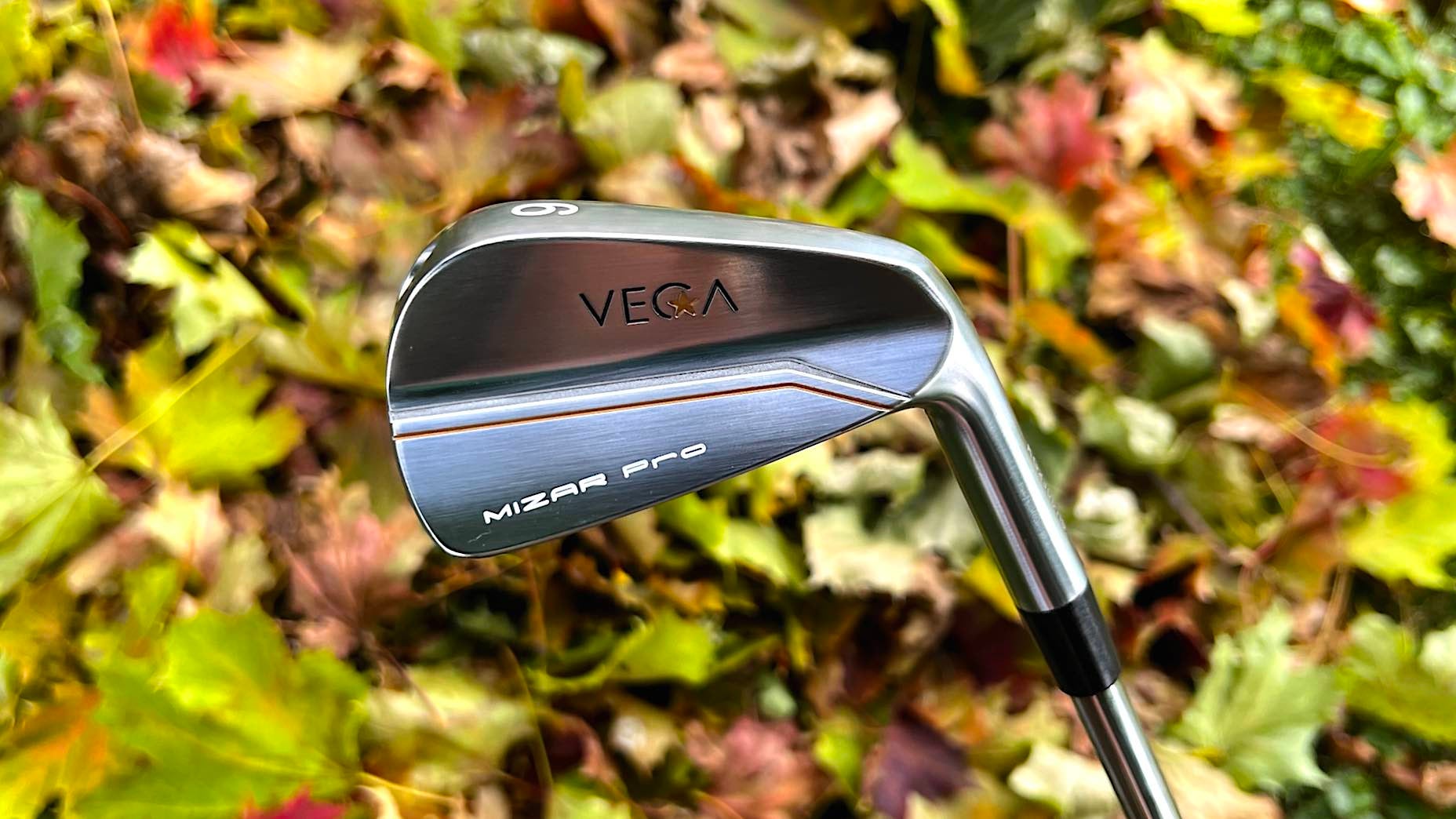
Vega Mizar Pro irons combine modern technology with classic styling
Ryan Barath/GOLF
Welcome to GOLF.com’s ClubTest Proving Ground, where Managing Equipment Editor Jonathan Wall and Senior Equipment Editor Ryan Barath put the latest designs and groundbreaking technology in the equipment space to the test on the range and the course.
Vega Golf is known for its premium Japanese-forged irons and wedges, which offer classic looks along with models that combine modern multi-material technology with traditional forged construction. Now, with their newest Vega Mizar Pro irons, they’re combining a traditional forged blade shape with multimaterial adjustability to offer extra playability without sacrificing workability.
Tools: I had the opportunity to test a set of Vega Mizar Pro irons (4-PW) shafted with Shimada Tour Mid iron shafts. The Shimada Tour Mids are a mid-weight (115g) taper tip shaft designed to deliver the stability of a heavier Tour-weight shaft with the slightly softer feel of a lighter one. As a golfer who traditionally uses a steel shaft in the 115-gram range, this shaft fits the bill perfectly.
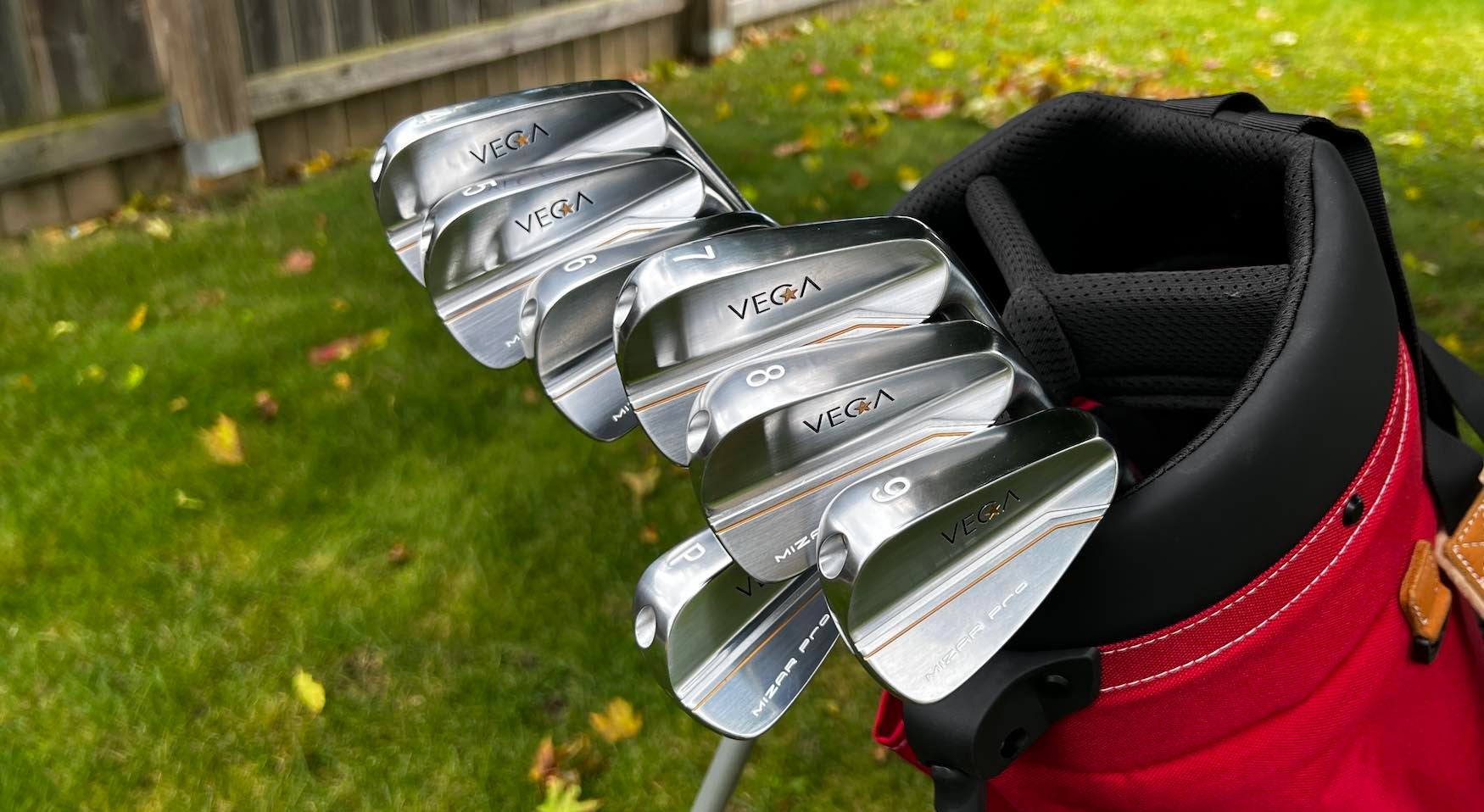
The only adjustments I made to the irons from their standard spec is that I bent them 3 degrees flat from their standard lie angle to align with my personal specs.
The Test: To find out how the Vega Mizas Pro irons combine a premium forged blade look with forgiveness and ease of use.
Vega Mizar Pro design introduction
The Mizar Pro irons take a classic straight muscle blade shape and turn it inside out — or at least hollow it out, thanks to a unique weight port that goes from the toe of the iron all the way into the heel of the club.
This hollow cavity then holds a weight bar that changes mass and material through the set depending on the iron to help optimize launch and spin. They start with Tungsten in the long irons and then transition to titanium in the mid-irons and finally the lightest aluminum bar in the shortest clubs.
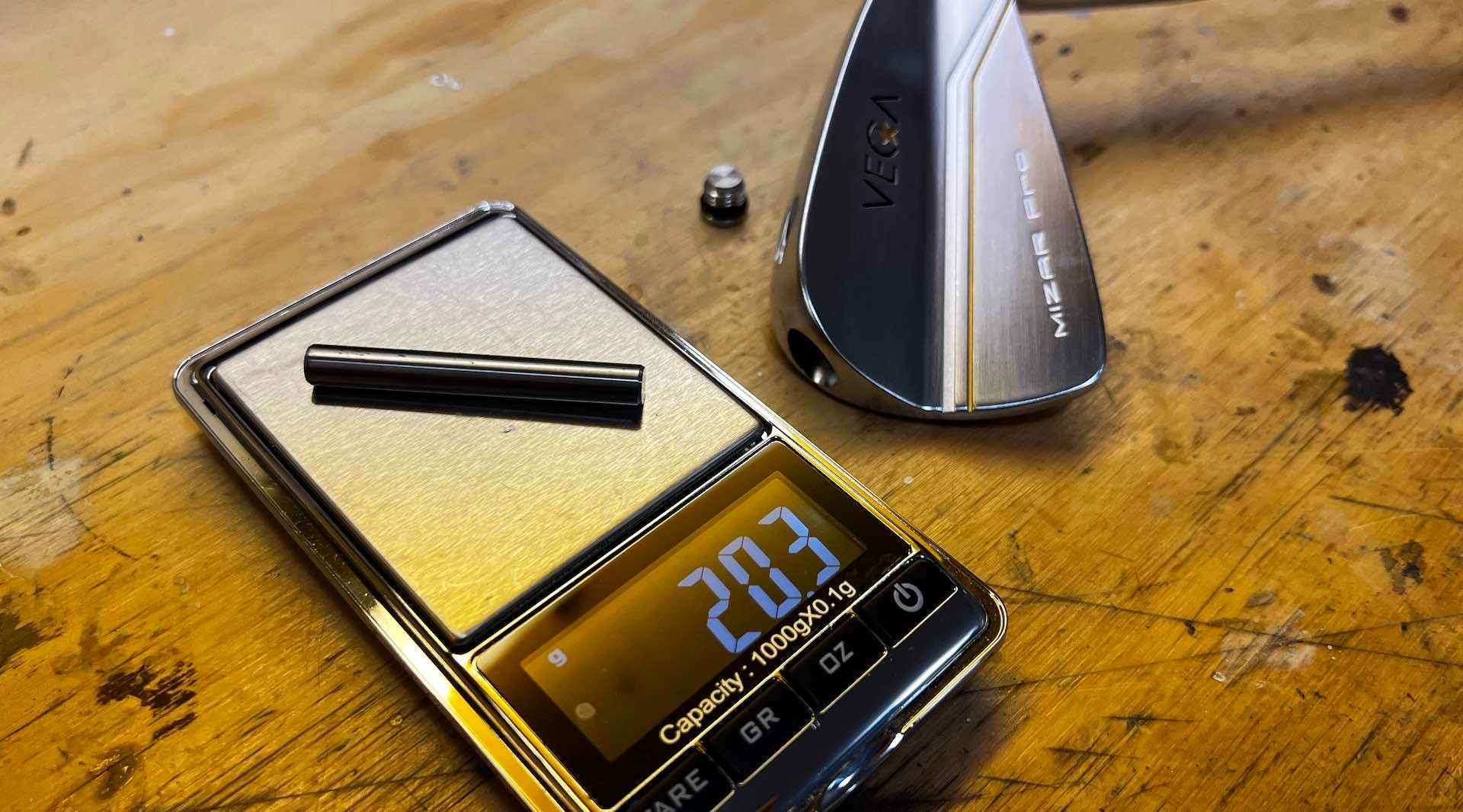
The solid one-piece body of the iron is forged from soft carbon steel, and then the face, back, and final geometry of the head is fully CNC-milled to the final tolerance.
Compared to many other irons in the blade category the Mizar Pros offer a slightly wider sole and longer blade length (measured from heel to toe) which not only helps frame the ball but also increases MOI and forgiveness. It’s important to remember that these are still 100% a blade iron but it’s small design details like this that separate them from a traditional muscle back blade.
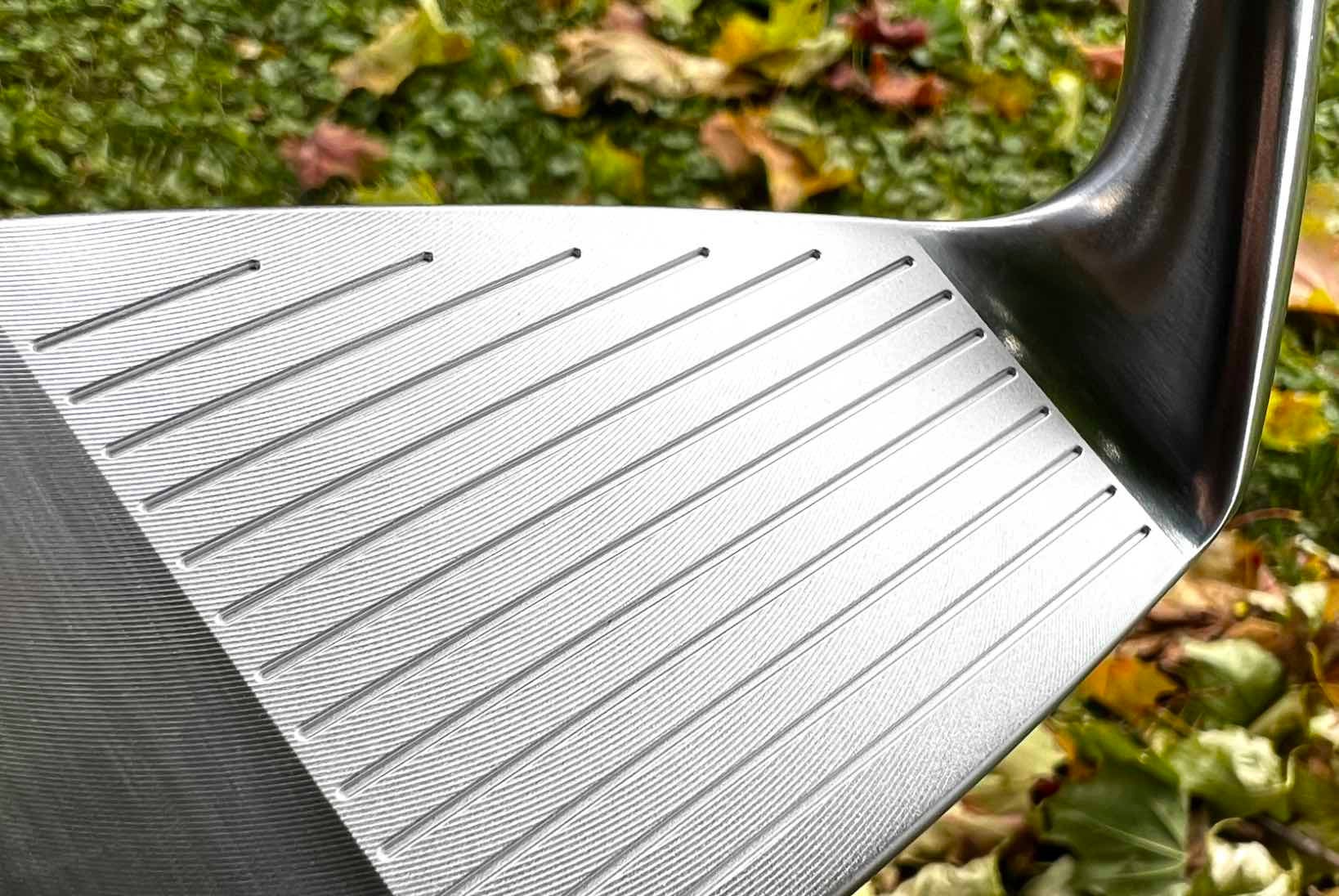
Results: Let’s kick this one off with the detail most golfers are concerned with when looking at a golf club in this category: feel.
The Mizar Pro irons feel just as good as any forged iron I’ve ever hit including Vega’s own one-piece forged VMBs. I’ll be honest in saying that I was slightly concerned the hollow cavity containing the various weight bars would have an impact on impact sound and feel but if you were to cover up the screw that covers the weight port I don’t think I’d even know it was there.
One place I did notice a difference though was in the performance, not just in the longer irons where I really expected to see the ball flight pop up a bit more, but also in the shorter irons where I was able to control flight and spin. I think it was a perfect combination of the slightly stronger lofts of the irons (the pitching wedge comes in at 44 degrees compared to most blades that come in between 46-48°) and the extra weight placed higher in the head made possible thanks to the lightweight aluminum bar that is only 3 grams.
The stronger lofts helped me maintain the level of distance I usually find with cavity back irons while also helping to keep apex height down for greater control. From a fitter’s perspective, the stronger lofts and shifting CoG help eliminate one of the biggest issues I see a lot faster players struggle with when looking at muscle back irons — too much spin.
Conclusion: If you’re a golfer who enjoys using smaller blade and blade-style irons, but is also looking for the distance and workability that stronger lofts and more modern technology can provide, then the Vega Mizar Pro irons could be the perfect option for you to test out.
Want to overhaul your bag for 2023? Find a fitting location near you at True Spec Golf.


